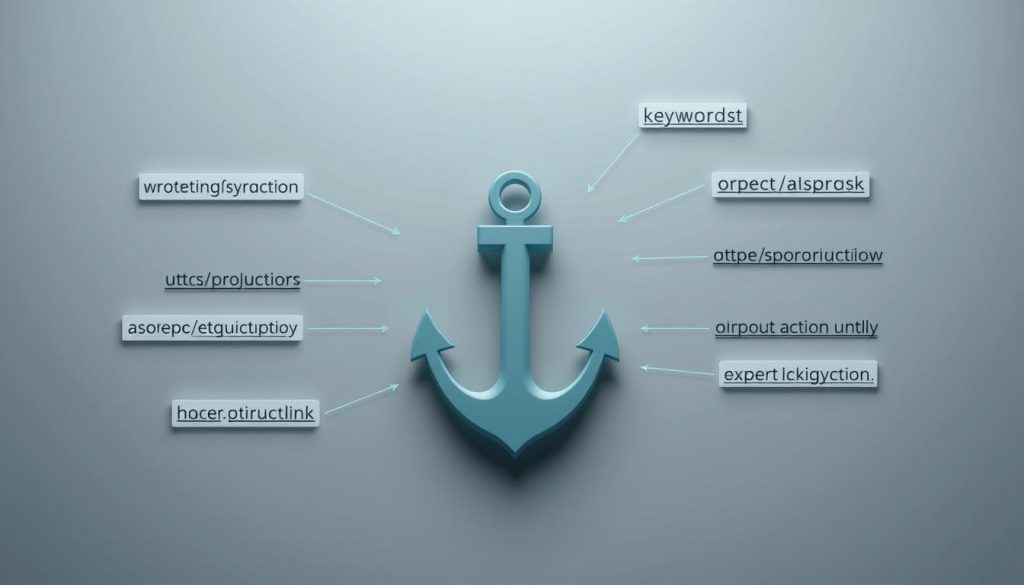Hyperlinks that point to other websites are a cornerstone of the modern internet. They connect your content to the wider web, creating a network of information. Search engines use this network to understand your site’s topic and gauge its trustworthiness.
This practice is not about randomly adding URLs. It is a strategic effort to enhance your content’s value. By directing visitors to authoritative resources, you improve their experience. You also show search engines that your site is part of a larger, credible conversation.
Getting the strategy right is crucial. Factors like link quality, relevance, and placement all matter. Proper implementation supports your SEO goals and helps you avoid penalties. It’s a balance that, when mastered, can significantly boost your site’s visibility and reputation. This is similar to how high-quality backlinks strengthen your site’s authority from other sources.
Table of Contents
Key Takeaways
- Outbound links help search engines understand your website’s niche and content focus.
- Strategic linking provides additional value and resources for your human visitors.
- Connecting to authoritative sources builds credibility with both users and search engines.
- Successful linking requires careful attention to quality, relevance, and placement.
- A proper external linking strategy is a fundamental part of a modern SEO approach.
Introduction to the Impact of External Linking on SEO
The digital ecosystem thrives on connections between websites through carefully placed hyperlinks. These connections help search engines understand relationships between different domains and content.
Defining External Links and Their Role
External links are hyperlinks that point from your pages to other websites. They differ from internal links, which connect pages within the same domain.
These outbound connections serve multiple purposes. They provide supplementary information to users and establish topical context for search engines. This creates the interconnected structure that forms the web’s foundation.

While internal links improve site navigation and distribute ranking power within your domain, external links build credibility through association with authoritative sources.
How External Linking Influences Link Equity and Rankings
The concept of link equity, often called « link juice, » explains how authority flows between websites. Search engines use this flow to determine page importance and trustworthiness.
Google’s PageRank algorithm historically treated these connections as votes of confidence. Pages receiving quality backlinks typically achieve better ranking positions.
Effective external linking creates positive user experience by offering additional resources. Search engines recognize this quality signal, which can indirectly influence rankings through engagement metrics.
Best Practices for Effective External Linking
The quality of your hyperlinks depends heavily on two critical elements: the anchor text you choose and the attributes you apply. These technical details significantly impact both user experience and search engine perception.
Optimizing Anchor Text for Clarity and Relevance
Anchor text serves as a clear signal about the destination page’s content. Instead of generic phrases like « click here, » use descriptive terms that accurately represent the linked resource.
A natural mix of keyword-rich and non-keyword anchor text creates authentic connections. This approach avoids appearing manipulative while providing valuable context to users.

Choosing Between Follow and Nofollow Attributes
The nofollow attribute tells search engines not to pass ranking signals to the linked page. You add rel= »nofollow » to the HTML code when you don’t want to endorse the destination.
Follow links are the default option and pass authority to the target site. Use nofollow for competitor references, sponsored content, or untrusted sources to maintain your site’s integrity.
Both attribute choices serve different purposes in your overall SEO strategy. Proper implementation ensures your outbound connections align with your content goals.
Mastering External Linking Strategies for SEO Success
Credibility in the digital space is often measured by the company your content keeps through its references. Strategic outbound connections can significantly boost your site’s perceived authority and trustworthiness.
Utilizing Authoritative Sources to Enhance Credibility
Choosing the right sources for your outbound connections requires careful evaluation. Look for domains with strong industry recognition and professional presentation.
High-quality references add substantial value to your content. They provide supporting evidence and statistical data that strengthen your arguments.

Integrating External Links Seamlessly into Your Content
Natural placement of outbound connections ensures smooth user experience. Links should flow logically within your text rather than appearing forced.
Strategic linking helps users access additional information without disrupting their reading flow. This approach enhances the overall value of your pages.
Effective integration requires balancing resource provision with user retention. Thoughtful placement maintains engagement while offering supplementary content.
| Quality Indicator | Excellent Source | Average Source | Poor Source |
|---|---|---|---|
| Domain Authority | Industry leader with proven expertise | Established but not top-tier | New or unknown domain |
| Content Accuracy | Well-researched and fact-checked | Generally reliable with minor errors | Contains significant inaccuracies |
| Professional Presentation | Clean design, easy navigation | Functional but dated appearance | Cluttered or difficult to use |
| Industry Recognition | Cited by multiple reputable sources | Some recognition within niche | Little to no industry mentions |
Building relationships through thoughtful linking can lead to valuable networking opportunities. This strategic approach often results in quality backlinks and improved industry standing.
Proper implementation of these strategies supports your overall link building efforts. It creates a foundation for sustainable SEO growth and enhanced user satisfaction.
Avoiding Common Mistakes with External Linking
Technical oversights and poor judgment can quickly undo your linking efforts. Even small errors can damage user trust and hurt your search visibility.
Identifying and Repairing Broken or Misconfigured Links
Broken connections create frustrating dead ends for visitors. They also signal poor maintenance to search engines.
Regular audits help catch these issues early. Use tools to scan for 404 errors and fix them promptly.
Check for proper anchor text and correct nofollow attribute usage. Misconfigured links waste ranking potential and confuse users.

Steering Clear of Link Schemes and Spam Tactics
Never participate in manipulative practices like buying links or excessive exchanges. These violate search engine guidelines and risk severe penalties.
Your site could disappear from results entirely if caught. Always use proper attributes for sponsored content.
| Common Mistake | Impact on Users | Impact on SEO |
|---|---|---|
| Broken Links | Frustration, lost trust | Negative quality signals |
| Overlinking | Confusion, distraction | Diluted authority, spam flags |
| Poor Placement | Lost conversions | Weak contextual signals |
| Link Schemes | Potential malware risks | Manual penalties, ranking drops |
Limit outbound connections on important conversion pages. Focus your external linking strategy on blog content where they add value without costing sales.
Regular maintenance ensures your links remain relevant and functional. This protects both user experience and search performance.
Conclusion
Strategic outbound connections transform your content from an isolated page into a valuable resource hub. This guide has detailed the best practices for making these connections work for your SEO and your audience.
Remember, this is an ongoing process. Regular audits ensure your links remain relevant and functional. Always prioritize the user experience by providing genuine value.
View this strategy holistically. Quality content and smart linking build authority and trust with both users and search engines. Avoid shortcuts that risk penalties.
By mastering these principles, you build a foundation for sustainable growth and long-term credibility for your site.
FAQ
What is an external link?
An external link is a hyperlink that points from a page on your website to a page on a different domain. These connections help search engines like Google understand the context of your content and its relationship to other information on the web.
How do external links affect my site’s SEO?
When used properly, these links can boost your search rankings by demonstrating that your content is well-researched and connected to authoritative sources. They provide additional value to users and can indirectly influence your site’s perceived authority.
What is the best way to write anchor text for an outbound link?
Use descriptive and relevant anchor text that clearly tells users and search engines what the linked page is about. Avoid generic phrases like « click here. » For example, instead of « click here for statistics, » use « recent Google search statistics. »
When should I use a nofollow attribute on an external link?
Apply the `rel= »nofollow »` attribute to links that are paid for, such as sponsorships or ads, or when linking to unvetted user-generated content. This tells search engines not to pass link equity to the destination, which is a key best practice.
How can I choose high-quality websites to link to?
Prioritize linking to reputable and authoritative sites like established news outlets, government websites (.gov), educational institutions (.edu), and well-known industry blogs. High-quality sources enhance your content’s credibility.
What is a common mistake to avoid with external linking?
A major error is neglecting broken links. Regularly check your outbound connections with tools like Google Search Console to find and fix links that lead to error pages, as they harm user experience and can negatively impact your SEO efforts.
Are there any linking tactics I should avoid?
Yes, steer clear of any link schemes or excessive link exchanges designed purely to manipulate rankings. Search engines penalize such spam tactics. Focus on providing genuine value to your readers through natural, contextually relevant links.





